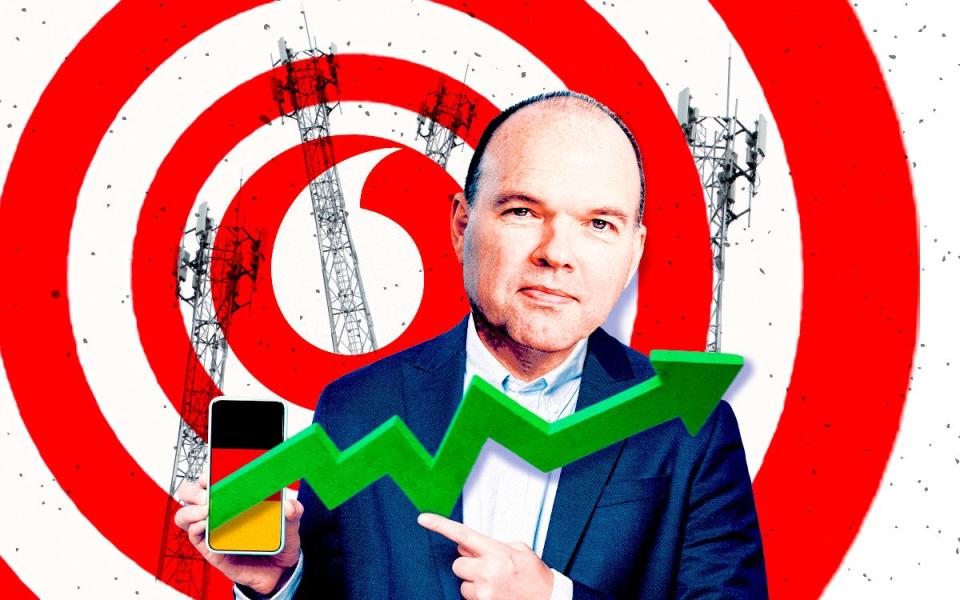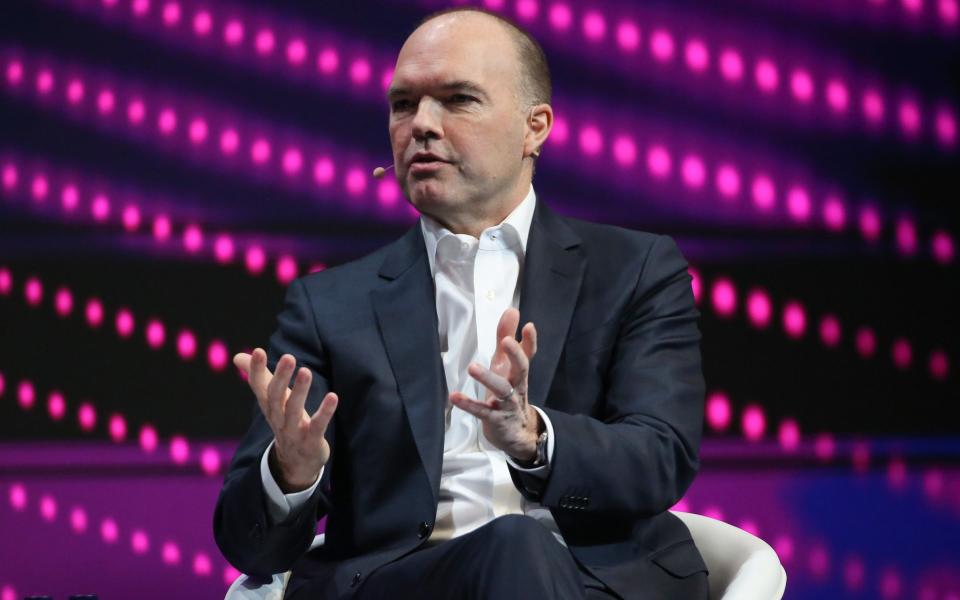Vodafone eyes European deals to drive growth

Vodafone is gearing up for a European merger spree after a jump in smartphone sales helped the mobile company boost its profits and soothed fears over its troubled German arm.
Nick Read, the company's chief executive, is on the hunt for deals in countries such as Italy, Spain and Portugal where there are five or more operators struggling to earn solid returns because of stiff competition.
He says: “All players are suffering and I believe that is an unsustainable model. If you look at the US, they have three scale players with on average 95m customers each."
"Three players represents the right balance of competition, but at the same time they are attractive enough to have returns on capital to have an inflow of investment to build competitive next-generation infrastructure, which is what every country needs. What we should be allowed to do is consolidate down."

It came as Vodafone reported a 1.2pc rise in sales in Germany for the six months to September, up from a 0.1pc decline a year earlier, in a much-needed sign of momentum after the company won control of Liberty Global’s German and east European cable companies in an €18bn (£15.7bn) deal in 2018.
Overall revenues rose 5pc to €22.5bn (£19bn) following an improvement in service sales and a recovery in handset revenues in Europe and Africa as the Covid crisis eased.
The company now expects annual adjusted profits to be at the top end of the €15.2bn to €15.4bn range, compared with a previous forecast of €15bn to €15.4bn.
Shares closed 5pc higher at 118.1p, but the stock had been trading as high as 142p in May. Investors remain concerned about poor performance in Germany in previous quarters, according to Usman Ghazi, an analyst at Berenberg.
Vodafone's latest figures suggest a turnaround is starting to take hold as German customers head back onto the high street.
The company added 86,000 cable customers and 54,000 mobile contracts in the country in the half-year. Mobile churn, the rate of customers cancelling their deals, improved by 1.1 percentage points to 11pc.
The results have emboldened Read as he pushes European politicians and regulators to back consolidation.
In his eyes, Germany's performance shows that fewer, larger players are needed to deliver the next generation of digital infrastructure.
He says: "Post pandemic, I think there is a realisation of how critical this infrastructure is. How much we need the flow of investment.
"There is more of an acknowledgement of the importance of the return on capital and that we need the right level of returns and the industry needs that support.
"This is a very active conversation that we are having with every member state throughout Europe, in the UK and Africa. We are also having those conversations with the European Commission."
Read wants Europe to follow in the footsteps of America and China, where the telecoms market is already concentrated around a smaller clutch of large players.
It is a compelling argument as politicians plot their economic recovery from the pandemic. The question is whether this perspective is strong enough to trump the prevailing view that more competition - rather than less - is best for consumers.
The UK may be a key market where regulators' resolve is tested, with Read suggesting the four main mobile networks could be reduced to a smaller cohort to help "drive momentum".
Analysts believe Vodafone is already weighing a takeover approach for Three UK, the mobile operator owned by the Hong Kong tycoon Li Ka-shing through CK Hutchison Holdings.
Vodafone may take some comfort from the European courts, which last year overturned the Commission's decision to block a £10.3bn merger between O2 and Three.
However, that move is likely to have little bearing in the UK, where the telecoms regulator Ofcom has already signalled its reluctance to allow more deals.
Karen Egan, of Enders Analysis, says: "I think Nick Read sounds too confident with regard to the UK. There is a bit more acknowledgement to balance investment and returns, but I think that the appetite for consolidation is still quite weak.
"It is hard to think how Three UK is going to thrive or even survive without such a deal, but I don't think it is there for the taking in any stretch of the imagination."
Egan believes Vodafone's heavy debts are a key reason that it is eyeing merger opportunities for Vantage Towers, the mobile masts operator that was carved out of the business in a move that could pave the way for Vodafone to sell down its 82pc stake.
At the beginning of February, Vodafone will mark more than two decades since it became a global mobile titan through a $183bn takeover of Germany rival Mannesmann.
The hostile, cross-border swoop was the pièce de résistance of a deal spree that quadrupled the company's size in less than two years.
And yet within five years, Vodafone was forced to stomach one of the largest post-takeover writedowns in history when it was landed with a £28bn charge.
Shares remain 76pc lower today than in March 2000.
It is a cautionary tale for Read as he embarks on a fresh round of empire building. But with growth still stubbornly low in key markets, he has little option but to act.
Compare mobile phone deals

 Yahoo Finance
Yahoo Finance 